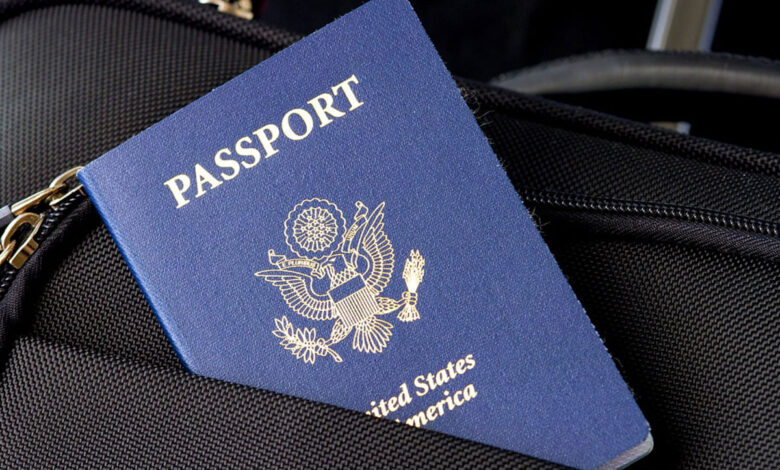How to Get A Free Visa In Europe? 2024 Guide

Europe is a top destination with so much to offer rich culture, incredible scenery, thriving nightlife and so much more. But lengthy visits beyond standard 90 day tourist stints often require navigating complex visa restrictions.
Visa costs and bureaucratic hurdles can make extended stays prohibitive. However, those hoping for long-term adventures do not need to get discouraged.
There are still pathways to completely legal and legitimate free visas if you are strategic and willing to put in some work.
This guide covers the best methods for getting cost-free visas allowing you to immerse yourself in Europe long-term without emptying your bank account.
From student visas to work programs to ancestral ties and more, here are actionable tips for scoring fee waivers or exemptions for your upcoming European voyage.
Do Your Research on Visa Requirements:
The first step to getting a free visa in Europe is doing thorough research on the visa requirements for your desired destination countries. Each European country has its own rules, fees, and paperwork for visas.
Some countries may allow you to visit visa-free for tourism or business purposes for up to 90 days while others require visas.
Look up the official government travel sites for the countries you want to visit to find details on visa categories, application processes, documents needed, processing times, and fees. For longer stays, find out if you are eligible for long-term study, work, or residency visas. Understanding the exact visa you need will streamline your application.
Check If You Qualify for Visa Waivers:
Many travelers are eligible for visa waivers allowing short visa-free trips for tourism or business. The Schengen Area has a common visa policy that allows 90 days of travel over a 180 day period.
See if your country has a visa waiver program with the European country you wish to visit. For example, the United States has visa waiver programs for tourism and business travel with many European countries.
Also research if you qualify for visa waivers based on factors like having family or spousal ties in Europe. Visa waivers save the time and cost of applying for visas.
Apply for Visa Sponsorships and Programs:
Look into educational, work, or volunteer programs in Europe that provide sponsors who handle visa paperwork for participants.
Programs like university exchanges, internships, teaching jobs, and volunteer initiatives assist with visas by covering costs and dealing with the administrative process.
For example, the European Union offers an Erasmus+ program providing scholarships for students to study abroad at European universities for 3 to 12 months while arranging visas. Similar intercultural exchanges cater to students, teachers, trainees, and volunteers.
Use Your Current Circumstances:
If you have certain existing ties to European countries, use them to exempt yourself from traditional visa requirements.
For instance, if you have parents or grandparents who immigrated from a European country, you may be eligible for citizenship visas or long-term residence permits based on ancestry. Having family in Europe makes getting visas much easier.
Or if you or your spouse have work contracts with European companies, there are special intra-company transfer and family reunification visas. Look into how your current situation applies.
Marry a European Citizen:
Getting married to a European citizen is a straightforward path to getting European residence rights and waiver of visa obligations.
After marriage, the European spouse can sponsor the non-European partner’s residence permit and Schengen visa. However, immigration authorities will want to see proof of genuine relationships so quick marriages of convenience don’t work.
But, before thinking in marry a European citizen, i advice you at least to do some visit trips to check for the culture and how do people live there, foe example you can visit Italy and France because both are from the most visited countries in the world.
If you’re dating a European citizen long-distance, marriage and family visas provide a legal means for you to immigrate. These visas typically lead to permanent residency and then citizenship.
Invest Money Through Golden Visas:
Several European countries offer golden visa programs that grant residency rights and free movement within Europe to non-EU citizens who invest in property or businesses there.
Countries like Portugal, Spain, and Greece offer golden visas in exchange for buying real estate valued at 250,000 to 500,000 euros or more. Other investments like bonds, businesses, donations, and government funds can also qualify.
Golden visa investments accelerate legal residence and visa status. Check the official immigration site of your target country for Golden visa investments accelerate legal residence and visa status.
Check the official immigration site of your target country for the investment options and amounts required.
Apply for Scholarships and Grants:
There are various scholarships and grants offered by European universities, foundations, and cultural institutions that provide funding for international students to study in Europe. These often take care of visa costs and processing, for example the Unite Kingdome always offers free scholarships that everyone can apply easily.
Research scholarship databases to find programs you are eligible for based on your academic background, nationality, field of study etc. Submit thoughtful applications emphasizing how studying in Europe will benefit your career.
Look Into Working Holiday Visas:
Some European countries have special working holiday visas that enable young travelers to live and work there for an extended stay. These visas are geared towards experiencing life abroad.
Countries part of the Working Holiday Visa program include Germany, Ireland, Italy, France, and Sweden. Terms allow working part-time while exploring the country for up to 12 months. Apply through an authorized exchange program sponsor.
I admit that middle east is easier than Europe using this method, so for more information check how to get job contract in UAE.
Contact Travel Blogger Networks:
Reach out to travel blogger associations connected to Europe. Travel bloggers have insider access and resources those seeking long-term European visas and residence permits may lack.
Network with European travel bloggers through conferences, online forums, social media groups. Provide content, services, or sponsorships in exchange for assistance securing spots in visa sponsorship programs, internships, tourism boards etc.
Balance Between the Pros and Cons of Different Options:
Getting a free visa in Europe takes effort and commitment. Once you research and find potential visa avenues, carefully analyze if the time, resource requirements and obligations are worth it for your goals and circumstances.
Compare all options mapped out – which pathway seems the most feasible and has benefits aligned with your objectives of why you want an extended stay in Europe. An informed cost/benefit analysis helps determine best next steps.
Conclusion:
Getting a free visa in Europe requires research, planning, and perseverance, but the opportunities are out there.
Visa rules continually evolve and governments sometimes provide incentives to boost development, so regularly check official immigration sites and stay on the lookout for new programs. Leverage your existing ties and credentials.
Determine the timeframes and criteria that work for you. With diligent information gathering and a strategic approach, it is possible for motivated travelers to secure cost-free arrangements for short-term stays or long-term relocation across Europe.
Just focus your efforts and be patient. The lengthy yet worthwhile journey to a visa-free European destination can become a reality if you put these tips into dedicated action.

